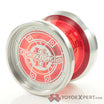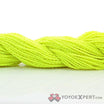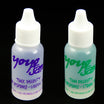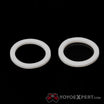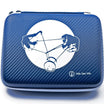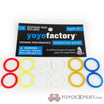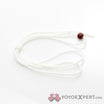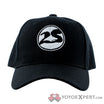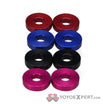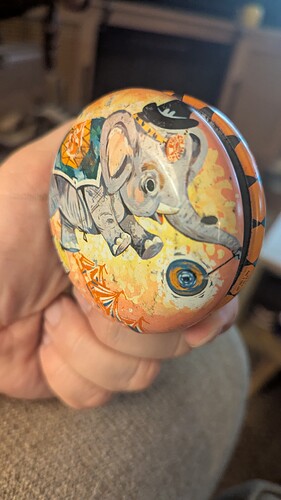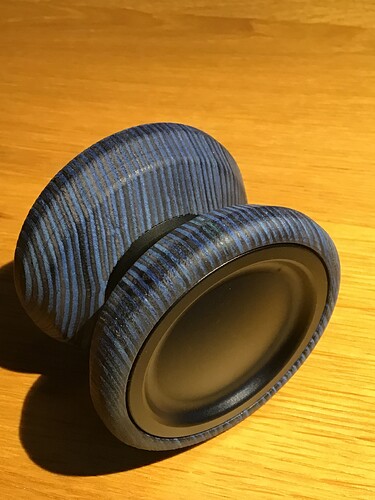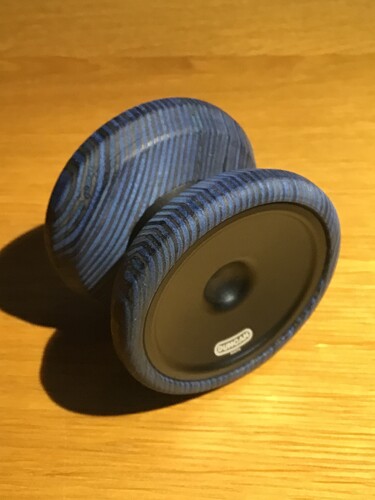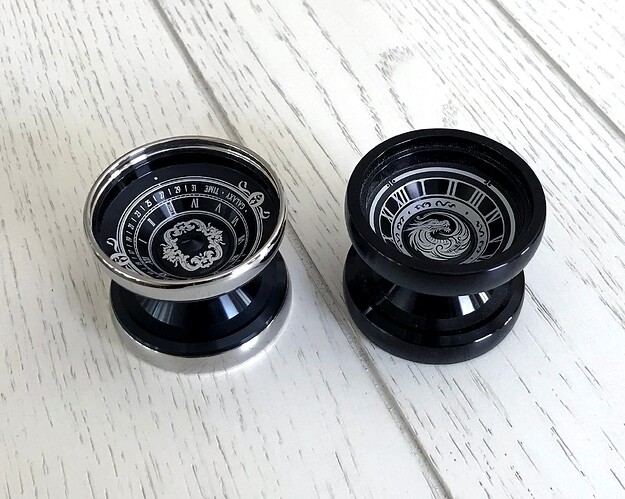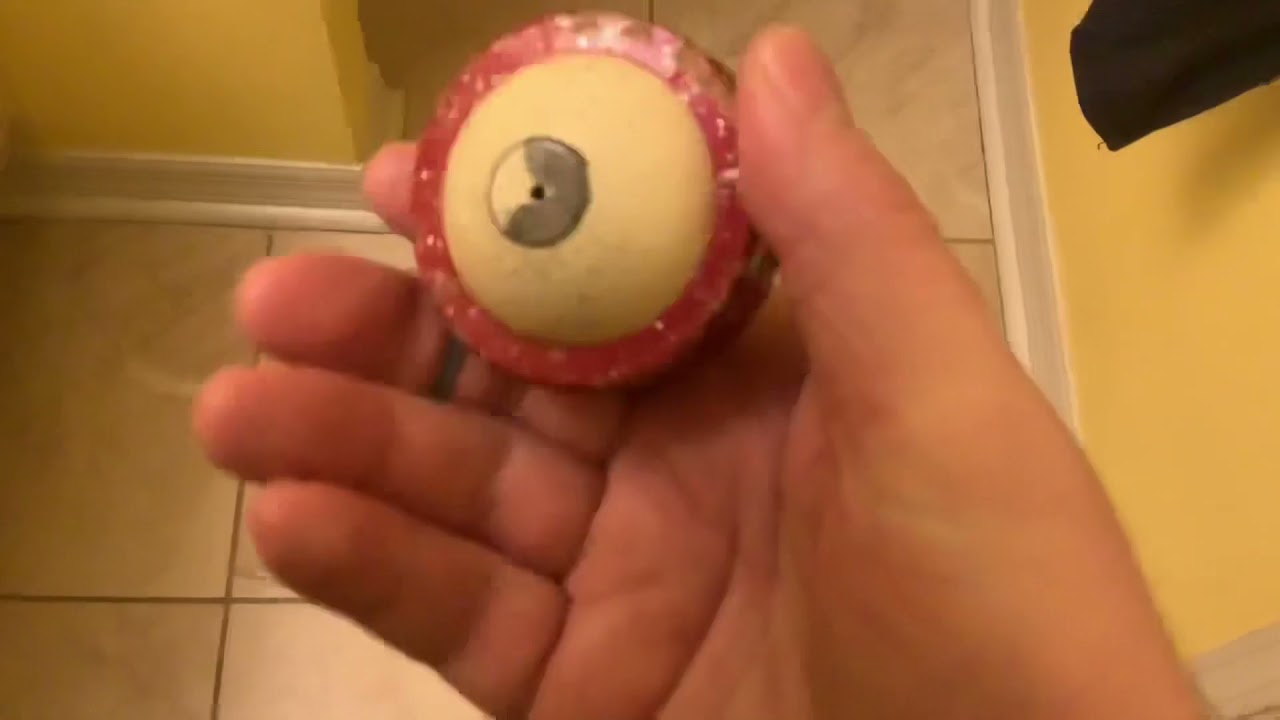No problem, maybe a nylon string would have yielded different results but all I have is poly and cotton at the moment
If I end up landing on some hot next gen plastic for blanks ideally I want it working on everything so poly is fine for testing. Hopefully I didn’t ruin your string lol.
Lol, the string looks normal but I’m not risking it, it’s going to the string pile for my daughter to make bracelets.
Oh, and to bring the thread back to pics, I present tin Elephant with a hat.
Fellow disc golfer let’s goooo!
I had one of these but the middle was punched through and it no longer made sound.
And yall said poly melting/messing up a wood axle was a myth. Lol
Plastic axles don’t work. The heat generated from the yoyo spinning is higher than a plastic’s melting point.
It depends on the plastics friction, heat resistance, and string. We migrated the conversation but the blanks that melted with poly survived abuse with a cotton string.
These were also on the lower grade of plastics. I have some polyketone rated to 150 c on hand, and nylon can get almost as hot. Ultem can get even hotter but I can’t print it yet.
There are a lot of engineering grade plastics out there made to handle extreme heat and abrasions. Of course admittedly machining a blank from stainless or whatever is probably a lot more cost effective but this is just as much about learning and experimenting as anything and we won’t make new discoveries without trying.
All that said I’m also shopping around laser cutters and might try to cut some wood blanks.
Yes, but can those high heat tolerant plastics be 3D printed? You’ll need one that can at least stand over 200 degrees celcius.
I know I looked into every available plastic rod and the only one that looked like it could stand the heat was PEEK, which is roughly 5 times the price of any other plastic.
However, you are looking at filaments. Perhaps you do have more options.
I know that walnut axles on fixed axle yoyos can be scorched with a hard throw. That must make the heat in excess of 200 degrees celcius to do that.
PEEK can be printed but it’s a pain and expensive. Nylon, polycarbonate, polyketone, pvdf can all be printed on printers like mine.
Some plastics may be lower friction than wood and generate less heat as well.
But I also don’t necessarily want to make the ultimate unbeatable blank. Kind of like how no jives were made because axles broke or burned, if I can let’s say make a blank that handles the average throws without issue, costs a fraction of a penny to make, and is easily mass produced in my workshop I would call it a big win.
Pink looks like the sides melted a bit, transaxle style.
@AudreySickburn do you cure the HTPLA after printing?
I did not heat treat these. But I might test that next. This HTPLA can be annealed to withstand up to 140 C but it requires some planning. I need to heat treat some, measure shrinkage, and edit the model to account for that.
It’s actually possible that the heat from the hard throw anealed the HTPLA shrinking it enough to let it spin like a transaxle. ![]()
That’s what I was wondering, but I think there should be some amount of expansion first before shrinking to original size (or smaller? I don’t know about that)
I just got the same one! Wasn’t sure what to expect, but I’m really loving it. I have a growing fondness for unique yoyos, and this one definitely fits the bill! ![]()
And the wantyness grows ![]() cuz I don’t have enough yoyos
cuz I don’t have enough yoyos ![]()
![]()
Glad to hear that you’re liking it, it’s definitely unique, easily the largest throw that I own…
